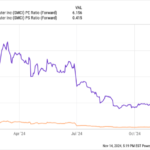Over the years, the intertwining of government support and private enterprise has been a bedrock of innovation, especially in capital-intensive fields such as space exploration. The Apollo program stands as a testament to the immense role played by government-funded initiatives in advancing the boundaries of human achievement.
SpaceX, under the stewardship of Elon Musk, broke new ground by blending public-private partnerships, garnering over $15 billion in government backing through contracts, grants, and subsidies. This approach propelled their success in the aerospace industry, primarily through collaborations with NASA and the U.S. Air Force.
Rocket Lab’s Innovative Launching Strategy
Adopting a minimalist ethos in its operations, Rocket Lab’s approach to space launches prioritizes efficiency and practicality. By utilizing 3D-printed components for its Rutherford engines, the company has streamlined production processes, reducing the inherent risks associated with space missions.
Specializing in smaller launches, Rocket Lab’s Electron rockets have carved a niche in delivering payloads of up to 300 kg to low Earth orbit (LEO). While this capacity falls short of SpaceX’s Falcon 9, Rocket Lab’s focus on smaller satellites enables cost-effective and frequent launches, catering to the burgeoning demand in the small satellite market.
“Electron remains right-sized for the small sat market, and releasing additional performance is about providing our customers with even more flexibility on the same proven vehicle they have come to rely on.”
– Peter Beck, Rocket Lab CEO
Since its maiden voyage in May 2017, Rocket Lab has launched 51 Electron rockets, encountering only a few setbacks while deploying an impressive array of over 190 satellites, a testament to their operational efficiency.
Rocket Lab’s Diverse Range of Contracts
Having secured a myriad of government contracts and commercial partnerships, Rocket Lab’s trajectory in the aerospace industry is on a steady rise. Notable contracts include collaborations with entities like the U.S. Space Force, the Space Development Agency, and the Space Systems Command, underscoring their credibility and reliability in the domain.
Furthermore, the company’s foray into commercial contracts, exemplified by agreements with clients like Kineis for satellite constellations, showcases their diversified revenue streams and market adaptability.
Evaluating Rocket Lab’s Financial Performance
While Electron launches form a substantial part of Rocket Lab’s revenue stream, the company’s Space Systems division, focusing on spacecraft design and component acquisition, plays a pivotal role in bolstering their financial standing. Strategic acquisitions of firms like Advanced Solutions, Inc. and SolAero Holdings have further enhanced Rocket Lab’s capabilities and market positioning.
Despite reporting a net loss, Rocket Lab’s year-over-year revenue growth and burgeoning backlog orders paint a promising picture for the company’s future profitability prospects. Their innovative Electron business model continues to pave the way for sustained growth and market expansion.
Looking ahead, Rocket Lab’s ambitious Neutron mid-capacity rocket project heralds a new chapter in the company’s evolution, positioning them to challenge SpaceX’s market dominance. With an eye on tapping into a lucrative market segment by 2030, Rocket Lab’s strategic vision and operational acumen showcase their potential as a formidable contender in the aerospace arena.
Predicting Rocket Lab’s Stock Trajectory
Despite some fluctuations, Rocket Lab’s stock has exhibited resilience in the market, buoyed by positive performance reports and future growth prospects. With analysts projecting a bullish outlook, the company’s stock price targets hint at substantial gains, underscoring investor confidence in Rocket Lab’s long-term trajectory.
While challenges may lie ahead, Rocket Lab’s strong contractual base and innovative ventures position them as a compelling investment opportunity, with the potential for significant returns in the evolving aerospace landscape.





